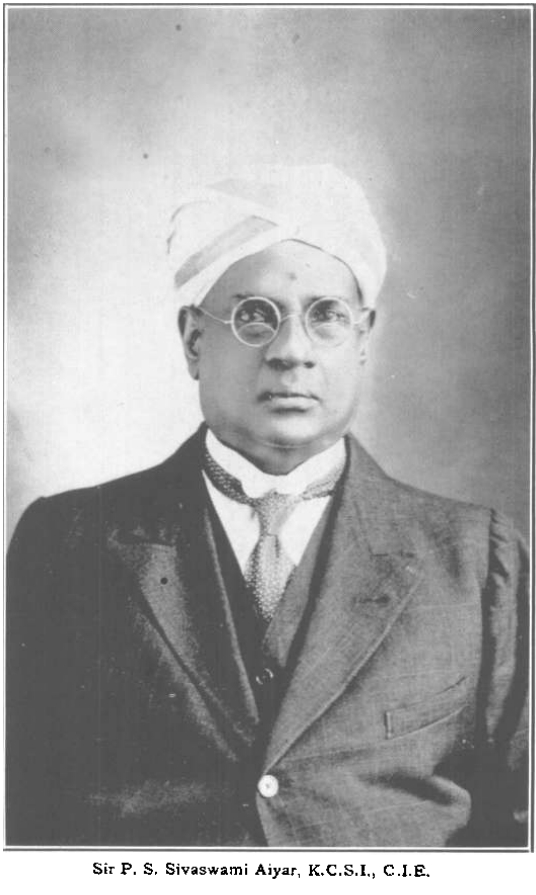|
Veni Shankar Jha
Veni Shankar Jha was an Indian educationist. He served as the director of public instruction of the Central Provinces and Berar and was the vice chancellor of Banaras Hindu University from 3 July 1956 to 6 April 1960. The Government of India awarded him Padma Bhushan, the third highest Indian civilian award, in 1971. See also * List of Vice-Chancellors of Banaras Hindu University The vice-chancellor of Banaras Hindu University (VC-BHU) is the chief administrator, and a full-time salaried officer of the Banaras Hindu University. The vice-chancellor derives his powers from sections 7(B) and 7(C) of the Banaras Hindu Univ ... References External links * Recipients of the Padma Bhushan in medicine Year of birth missing Year of death missing Scholars from Madhya Pradesh 20th-century Indian educational theorists Vice Chancellors of Banaras Hindu University {{India-bio-stub ... [...More Info...] [...Related Items...] OR: [Wikipedia] [Google] [Baidu] |
Vice-Chancellor Of Banaras Hindu University
The vice-chancellor of Banaras Hindu University (VC-BHU) is the chief administrator, and a full-time salaried officer of the Banaras Hindu University. The vice-chancellor derives his powers from sections 7(B) and 7(C) of the Banaras Hindu University Act (BHU Act) and from the Banaras Hindu University Act#Statutes, statutes of the said act. Although the chancellor of Banaras Hindu University, preceding the vice-chancellor, is the "head of the university" under the BHU Act, it is only a titular position. The vice-chancellor is the principal executive and academic officer of the university. She or he is the ''Ex officio member, ex-officio'' chairperson of the Executive Council, the Academic Council, and the Finance Committee of the university. Applications for the appointment of vice-chancellor of Banaras Hindu University are invited openly by the Ministry of Education (India), Ministry of Education, which recommends the candidate to the president of India. Upon their satisfactio ... [...More Info...] [...Related Items...] OR: [Wikipedia] [Google] [Baidu] |
Madhya Pradesh
Madhya Pradesh (, ; meaning 'central province') is a state in central India. Its capital is Bhopal, and the largest city is Indore, with Jabalpur, Ujjain, Gwalior, Sagar, and Rewa being the other major cities. Madhya Pradesh is the second largest Indian state by area and the fifth largest state by population with over 72 million residents. It borders the states of Uttar Pradesh to the northeast, Chhattisgarh to the east, Maharashtra to the south, Gujarat to the west, and Rajasthan to the northwest. The area covered by the present-day Madhya Pradesh includes the area of the ancient Avanti Mahajanapada, whose capital Ujjain (also known as Avantika) arose as a major city during the second wave of Indian urbanisation in the sixth century BCE. Subsequently, the region was ruled by the major dynasties of India. The Maratha Empire dominated the majority of the 18th century. After the Anglo-Maratha Wars in the 19th century, the region was divided into several princel ... [...More Info...] [...Related Items...] OR: [Wikipedia] [Google] [Baidu] |
Education
Education is a purposeful activity directed at achieving certain aims, such as transmitting knowledge or fostering skills and character traits. These aims may include the development of understanding, rationality, kindness, and honesty. Various researchers emphasize the role of critical thinking in order to distinguish education from indoctrination. Some theorists require that education results in an improvement of the student while others prefer a value-neutral definition of the term. In a slightly different sense, education may also refer, not to the process, but to the product of this process: the mental states and dispositions possessed by educated people. Education originated as the transmission of cultural heritage from one generation to the next. Today, educational goals increasingly encompass new ideas such as the liberation of learners, skills needed for modern society, empathy, and complex vocational skills. Types of education are commonly divided into formal ... [...More Info...] [...Related Items...] OR: [Wikipedia] [Google] [Baidu] |
Padma Bhushan
The Padma Bhushan is the third-highest civilian award in the Republic of India, preceded by the Bharat Ratna and the Padma Vibhushan and followed by the Padma Shri. Instituted on 2 January 1954, the award is given for "distinguished service of a high order...without distinction of race, occupation, position or sex." The award criteria include "service in any field including service rendered by Government servants" including doctors and scientists, but exclude those working with the public sector undertakings. , the award has been bestowed on 1270 individuals, including twenty-four posthumous and ninety-seven non-citizen recipients. The Padma Awards Committee is constituted every year by the Prime Minister of India and the recommendations for the award are submitted between 1 May and 15 September. The recommendations are received from all the state and the union territory governments, as well as from Ministries of the Government of India, Bharat Ratna and Padma Vibhushan a ... [...More Info...] [...Related Items...] OR: [Wikipedia] [Google] [Baidu] |
Rajendra Prasad
Rajendra Prasad (3 December 1884 – 28 February 1963) was an Indian politician, lawyer, Indian independence activist, journalist & scholar who served as the first president of Republic of India from 1950 to 1962. He joined the Indian National Congress during the Indian Independence Movement and became a major leader from the region of Bihar and Maharashtra. A supporter of Mahatma Gandhi, Prasad was imprisoned by British authorities during the Salt Satyagraha of 1931 and the Quit India movement of 1942. After the constituent assembly 1946 elections, Prasad served as Minister of Food and Agriculture in the central government. Upon independence in 1947, Prasad was elected as President of the Constituent Assembly of India, which prepared the Constitution of India and served as its provisional Parliament. When India became a republic in 1950, Prasad was elected its first president by the Constituent Assembly. As president, Prasad established a tradition for non - partisanship an ... [...More Info...] [...Related Items...] OR: [Wikipedia] [Google] [Baidu] |
Sir C
''Sir'' is a formal honorific address in English for men, derived from Sire in the High Middle Ages. Both are derived from the old French "Sieur" (Lord), brought to England by the French-speaking Normans, and which now exist in French only as part of "Monsieur", with the equivalent "My Lord" in English. Traditionally, as governed by law and custom, Sir is used for men titled as knights, often as members of orders of chivalry, as well as later applied to baronets and other offices. As the female equivalent for knighthood is damehood, the female equivalent term is typically Dame. The wife of a knight or baronet tends to be addressed as Lady, although a few exceptions and interchanges of these uses exist. Additionally, since the late modern period, Sir has been used as a respectful way to address a man of superior social status or military rank. Equivalent terms of address for women are Madam (shortened to Ma'am), in addition to social honorifics such as Mrs, Ms or Miss. Ety ... [...More Info...] [...Related Items...] OR: [Wikipedia] [Google] [Baidu] |
Natwarlal H
Natwarlal (born Mithilesh Kumar Srivastava; 1912 — 25 July 2009) was an Indian fraudster known for his high-profile crimes and prison escapes, including having supposedly repeatedly "sold" the Taj Mahal, the Red Fort, the Rashtrapati Bhavan, and the Parliament House of India. Early life Natwarlal was born Mithilesh Kumar Srivastava in the village of Bangra in the Siwan district of Bihar. He was the older of two brothers. His father was a station master. Natwarlal first discovered his ability to forge after a neighbour sent him to deposit his bank drafts. Realising he could easily forge his neighbour's signature, he managed to withdraw 1,000 rupees from his neighbour's account before he noticed. Fleeing to Calcutta, Natwarlal enrolled as a student for a bachelor of commerce degree while working as a casual stock broker. He also tried to set up a cloth business, but failed. His house in Bangra is said to have been demolished by the British, though the land still belongs to ... [...More Info...] [...Related Items...] OR: [Wikipedia] [Google] [Baidu] |
Central Provinces And Berar
The Central Provinces and Berar was a province of British India and later the Dominion of India which existed from 1903 to 1950. It was formed by the merger of the Central Provinces with the province of Berar, which was territory leased by the British from the Hyderabad State. Through an agreement signed on 5 November 1902, 6th Nizam Mahbub Ali Khan, Asaf Jah VI leased Berar permanently to the British for an annual payment of 25 lakhs rupees. Lord Curzon decided to merge Berar with the Central Provinces, and this was proclaimed on 17 September 1903. The Central Provinces was formed in 1861 by the merger of the Saugor and Nerbudda Territories and Nagpur Province. Administration of the Berar region of the Hyderabad princely state was assigned to the Chief Commissioner of the Central Provinces in 1903, and for administrative purposes, Berar was merged with the Central Provinces to form the Central Provinces and Berar on 24 October 1936. After Indian Independence in 1947, a number ... [...More Info...] [...Related Items...] OR: [Wikipedia] [Google] [Baidu] |
Banaras Hindu University
Banaras Hindu University (BHU) IAST: kāśī hindū viśvavidyālaya IPA: /kaːʃiː hɪnd̪uː ʋɪʃwəʋid̪jaːləj/), is a collegiate, central, and research university located in Varanasi, Uttar Pradesh, India, and founded in 1916. The university incorporated the Central Hindu College, founded by Indian Home Rule-leaguer and Theosophist, Annie Besant in 1898. After Besant and her associates were marginalized, the university was established by Madan Mohan Malaviya with the financial support of the maharaja of Dharbhanga Rameshwar Singh, the maharaja of Benares Prabhu Narayan Singh, and the lawyer Sunder Lal. With over 30,000 students, and 18,000 residing on campus, BHU is the largest residential university in Asia. The university is one of the eight public institutions declared as an Institute of Eminence by the Government of India. BHU has often been referred by different names throughout the history and present. Some of the English names include Banaras Univers ... [...More Info...] [...Related Items...] OR: [Wikipedia] [Google] [Baidu] |
Government Of India
The Government of India (ISO: ; often abbreviated as GoI), known as the Union Government or Central Government but often simply as the Centre, is the national government of the Republic of India, a federal democracy located in South Asia, consisting of 28 union states and eight union territories. Under the Constitution, there are three primary branches of government: the legislative, the executive and the judiciary, whose powers are vested in a bicameral Parliament, President, aided by the Council of Ministers, and the Supreme Court respectively. Through judicial evolution, the Parliament has lost its sovereignty as its amendments to the Constitution are subject to judicial intervention. Judicial appointments in India are unique in that the executive or legislature have negligible say. Etymology and history The Government of India Act 1833, passed by the British parliament, is the first such act of law with the epithet "Government of India". Basic structure The gover ... [...More Info...] [...Related Items...] OR: [Wikipedia] [Google] [Baidu] |
List Of Vice-Chancellors Of Banaras Hindu University
The vice-chancellor of Banaras Hindu University (VC-BHU) is the chief administrator, and a full-time salaried officer of the Banaras Hindu University. The vice-chancellor derives his powers from sections 7(B) and 7(C) of the Banaras Hindu University Act (BHU Act) and from the statutes of the said act. Although the chancellor of Banaras Hindu University, preceding the vice-chancellor, is the "head of the university" under the BHU Act, it is only a titular position. The vice-chancellor is the principal executive and academic officer of the university. She or he is the ''ex-officio'' chairperson of the Executive Council, the Academic Council, and the Finance Committee of the university. Applications for the appointment of vice-chancellor of Banaras Hindu University are invited openly by the Ministry of Education, which recommends the candidate to the president of India. Upon their satisfaction, the president appoints the vice-chancellor. Per the BHU Act, vice-chancellors of the u ... [...More Info...] [...Related Items...] OR: [Wikipedia] [Google] [Baidu] |

_male.jpg)





